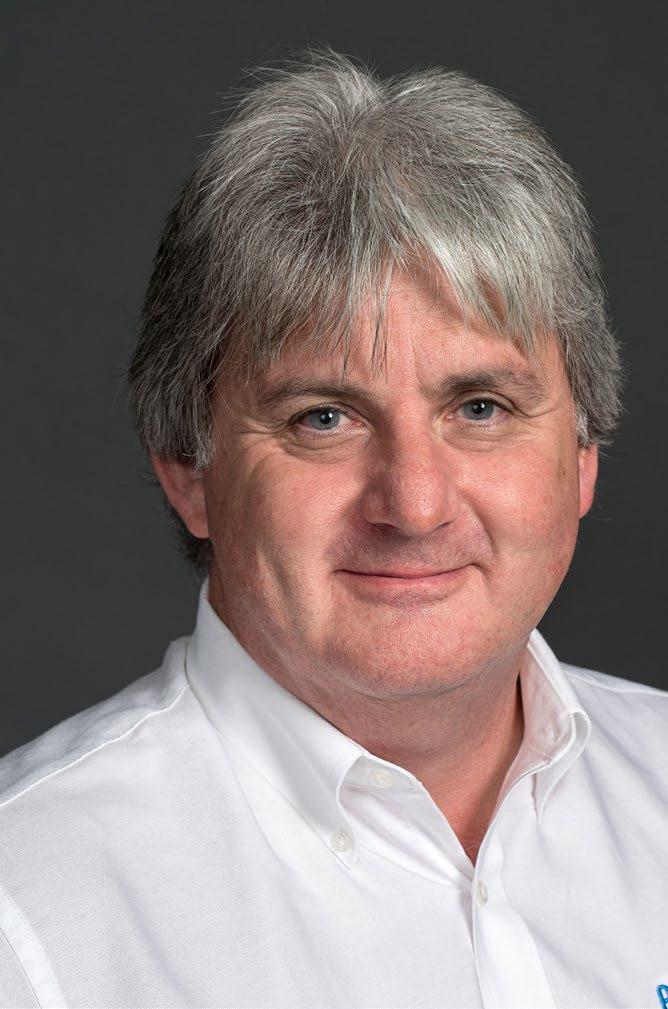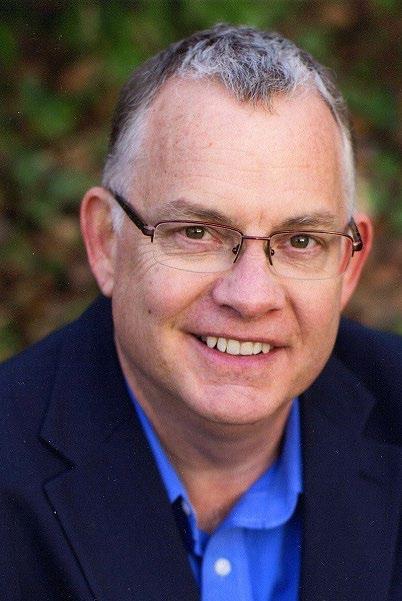
6 minute read
PROFILE
from CSI Summer 2021
by Maritime-AMC
In an industry first, Ecochlor has launched EcoOne™, a filterless ballast water management system. Clean Shipping International finds out more...
Ecochlor’s filterless system designed for a bulk carrier

FILTERLESS BWMS HITS THE MARKET
“By eliminating the filter, we have taken simplicity and reliability in ballasting operations to the maximum level,” says Ecochlor Business Development Vice President, Andrew Marshall on the company’s filterless ballast water management system (BWMS), EcoOneTM . “At the same time, we have maintained the original Ecochlor® BWMS’ high performance and service that customers expect from us.
“Comprehensive R&D and rigorous compliance testing of EcoOne™, along with a strong company philosophy focused on ‘engineering for reliability’, assures customers that every one of our products holds up to our strict ease of use and durability standards.
“Our powerful ClO2 (chlorine dioxide) treatment technology has been tested extensively to ensure that it works effectively as a single pass treatment under all operating conditions with no neutralisation or retreatment prior to discharge. Plus, there are no problematic TRO sensors, electrodes or complex power supplies in either the new EcoOne™ systems or the Ecochlor® BWMS.” CHOICE AND CONTROL
Having three systems to choose from helps the shipowner have more control in selecting the mode of BWMS operation that is best suited for their vessel. Ecochlor now offers: Ecochlor® BWMS (Filtration & ClO2): This system treats ballast water by filtering the water to 40 microns and then injecting a dose of 4.25mg/l of ClO2 . The system includes a generator cabinet, tanks, injection components, and main and aft peak tank filter(s) if required.
Vessels operating this system can operate anywhere in the world with no restrictions when it comes to temperature, salinity, or turbidity. EcoOne™ BWMS (ClO2 alone): This system treats ballast water by injecting a dose of 4.6mg/l of ClO2 . It includes a generator cabinet, tanks, and injection components. Vessels operating this system can operate anywhere in marine and brackish waters (ie, ≥ 1PSU) and with no restrictions on temperature or turbidity.
EcoOne™ Hybrid BWMS (Dual mode filtration & ClO2 or ClO2 alone): This system will allow shipowners to operate BWMS either with or without a filter. This option will be suited for shipowners who wish to have the flexibility of unrestricted operation globally, with the convenience of a no-filter system.
EcoOne™ recently completed extensive land-based testing at the Golden Bear Research Centre in California, demonstrating compliance with the most recent, stringent US Coast Guard (USCG) and International Maritime Organization (IMO) BWMS Code standards.
SHIPBOARD TRIALS
Actual shipboard testing was conducted on board the Maran Tankers Management’s Aframax Maran Atlas and VLCC Maran Aries. Five biological efficacy tests were started in September 2020 and all of the tests were expected to have been concluded in May.
The company said that it was hopeful of full IMO Type Approval during the third quarter of this year and USCG Type Approval by the fourth quarter.
Classification society approvals from American Bureau of Shipping (ABS), Lloyd’s Register, Bureau Veritas and the Korean Register among others were expected in the first quarter of next year, while flag administration approvals, including Greece and Cyprus, were scheduled during the same period.
As Ecochlor’ head, CEO Steve Candito has implemented a number of new advances in the company over the past few years beyond EcoOne™ , including improving the efficiency of the manufacturing processes and the expansion of Ecochlor as a “Green Marine” platform in collaboration with other maritime environmental business providers.
Candito comments: “EcoOne™ and EcoOne™ Hybrid represent what a first-class BWMS manufacturer can do when it listens to its customers, then shows a little initiative and a lot of innovation.
“We developed the new systems in direct response to concerns expressed by shipowners about how existing ballast water treatment processes are inflexible and may not be suitable for all vessels under all circumstances. Our newest BWMS’ offer more options to the shipowner, allowing them to make informed decisions for the BWMS requirements for each of their vessels, — all without sacrificing the reliability and ’best in class’ service and support that Ecochlor is known for throughout the industry.
“With an eye to the future, Ecochlor will continue to evolve and develop our core BWMS products as well as increase company growth through other environmentally and regulatory compliance focused products and services.”
The new system is capable of operating from 500 to 16,000cu m per hour, depending on the equipment stipulated, at between 4 kw to 6kw of power.
ENGINEERING STUDY
Ecochlor has been working with Singapore-based engineering concern Argo Navis since 2012. Thus far, the company has undertaken 80 retrofit projects resulting in 140 installations of the company’s ballast water treatment systems (BWTS).
Speaking at a presentation unveiling the new system, Argo Navis partner Andreas Zontanos explained that two engineering studies were conducted with EcoOne™ — one on a Suezmax and the other on a VLCC.
He claimed that there were shorter project timelines when choosing the filterless equipment, while the additional piping and other equipment is reduced. In addition, it alleviates the problem of clogged filters interrupting operations when sailing in very dirty water.
There were two major engineering challenges, Zontanos said. 1) Selecting the treatment unit’s location, ie chemical tanks and generators, which need separate spaces. 2) The arrangement of filters in the vessel’s pump room or engine room. In oil and chemical tankers, deckhouses need to be built on the upper decks. In the Suezmax test, the engine room needed around less 50% piping material when fitted with an EcoOne™ . In the pump room this proved to be about 30% less. With a filter system installed, a BWMS would need around 6km of cabling, but only around 3.5km without filters being fitted.
He claimed that the EcoOne™ engineering study was completed about 25% faster when compared to a standard Ecochlor BWTS.
The study revealed that major savings of about 40% were achievable in piping and around 30-50% in cabling, as well as other savings in the owner’s supplied equipment.
All of the Ecochlor BWMS are able to be upgraded with minimal modifications. By selecting EcoOne™ , from design to installation work, the timescale is about 20 days less than for a conventional system, Ecochlor claimed. For large tankers, the whole task is reduced by about a week as the piping and cabling needed in the pump room or engine room is much less.
A slightly higher dosage was needed of around 4.6ppm, compared to around 4.25ppm when using a conventional system. EcoOne™ was also claimed to be safe for today’s obligatory tank coatings.
Also speaking at the presentation, Mercie Merksamer, Vice President of EnviroManagement, explained the current position with the IMO’s Commissioning Test regime.
The regime will enter into force on 1 June 2022, but the IMO is encouraging its member states to implement it as soon as possible.
Flag administrations already requiring tests include Australia, Canada, Croatia, Cyprus, France, Greece, India, Tuvalu and Singapore, while currently recommending the regime are The Bahamas, Liberia, Malta and Panama.
Merksamer advised the use of a qualified testing organisation accepted or approved by a class society and a flag state.
Schedule the tests well in advance, she said, and plan the proper time and place — in a shipyard if appropriate, as a ballasting operation will be required. The crew should also be familiarised with the equipment to be used. She warned that the manufacturer was not permitted to interfere during a test.










